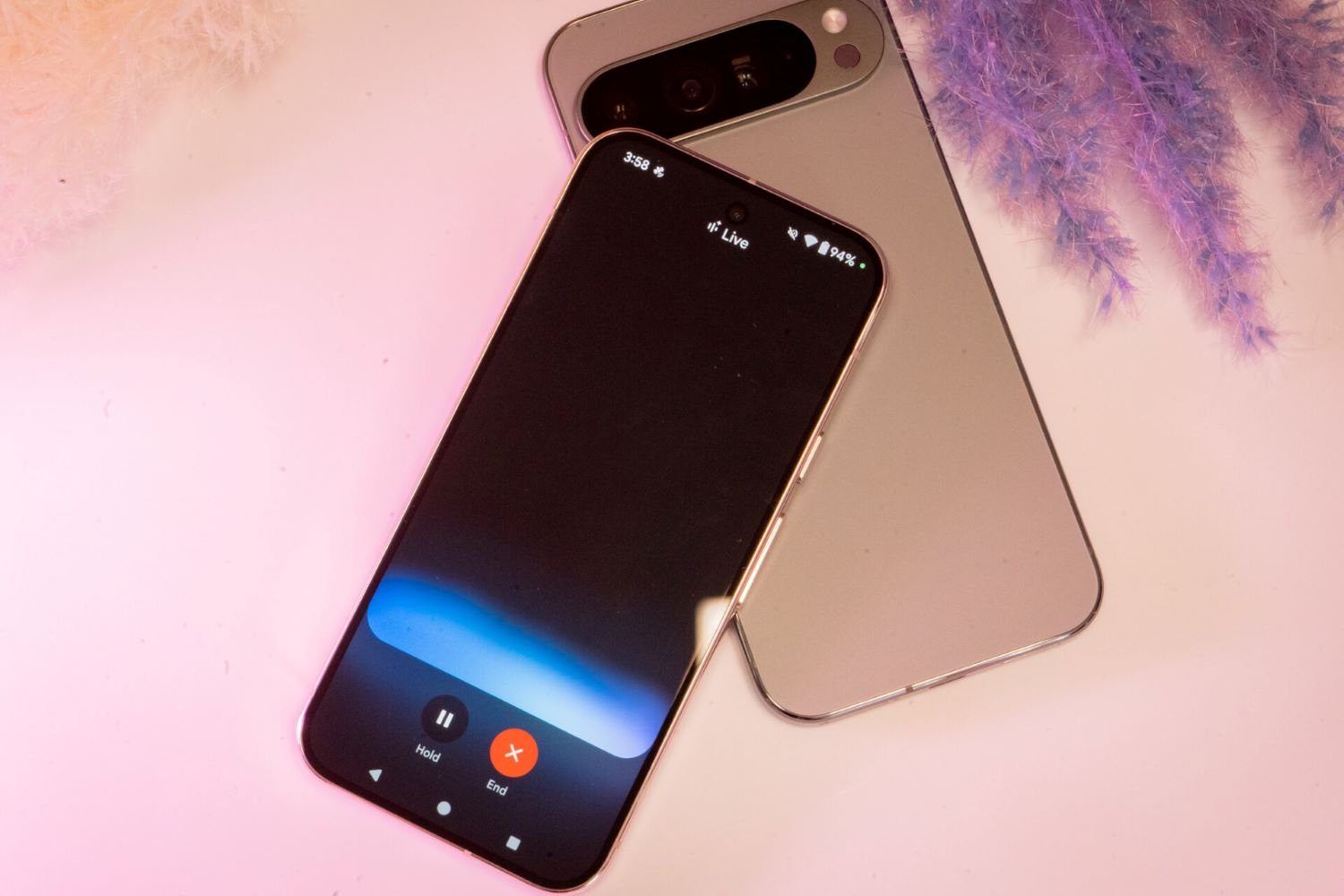- cross-posted to:
- android@lemmy.world
- cross-posted to:
- android@lemmy.world
Come on AI bubble burst already
I don’t think I’ve found a single use for Gemini it either refuses any questions I ask or just can’t do the task. I think everytime I’ve tried something I’ve resorted to using a different llm. Google has really lost its tech edge imo.
I asked it a question about PETG settings for a 3d printer and it told me to RTFM, but way wordier
I recently used Gemini just for fun, to help me find an old Android game that’s not on Google Play anymore. It was literally useless even though I described the game with a lot of details.
DuckDuckGo’d some details and 10 seconds later I was playing the game.
I only use Google Assistant to set timers and alarms. I tried it on Gemini and it said it couldn’t do that.
I’m ready for Linux Phone. No more of this big tech bullshit.
Yes, please this. Current phones like the PinePhone just need a bit of polish and then I’m ready to go.
The thing is, how do we bring that about?
I’m not sure Pine64 has a goal of bringing a product to retail readiness; the PinePhone was getting there, then they released the PinePhone Pro which broke a lot of the work done…
Idk. I don’t have the expertise to do low level work like battery tuning or fixing audio with any kind of efficiency, but once that work is done, I’d like to help get apps ported/created.
I’m not sure who to throw money at or whatever.
Gemini auf die Eier
My life for Eier.
Wie viel kosten die Eier?
Alles.
Brilliant!
If I had know the level of shit from google when I retired my previous 8 year old phone, I would have picked degoogled version of Fairphone.
That is what I have! And loving it. Admittedly the Fairphone 3 was quite slow and annoying when I got it, but with LineageOS and some changed settings I’ve actually never had a better phone, or felt better about my phone.
Mine ain’t.
GrapheneOS is go brrrr
We have to enjoy it while we still can
Let’s face it, unfortunately the GrapheneOS developer team depending exclusively on Google hardware is a terrible thing in the long run, I bet that overnight Google will close the siege with the Pixels or possibly even abandon them so the whole community will have no alternative
Google may also abandon Android, and there is no guarantee that another major company would keep it. I have real concerns about the Android model
PS: I know the hardware requirements that GrapheneOS has to support a device
It’s a reasonable stopgap until Linux smartphones are ready. I don’t need much, just regular phone features (phone, SMS/MMS, data, etc), decent battery life, and decent audio. Give me that and I’ll ditch my Pixel.
And honestly, I could probably switch today if forced.
The problem is that everything is so reliant on apps nowadays. Paying for parking? There are multiple apps for that. Want to make payments on the go? Gotta use the banking app. Want to buy a bus or a train ticket? Download the app. Appointment with a dentist or a doctor? Download our app that has 500 built in trackers! Here in Scandinavia It feels like it’s impossible to live without a smartphone and these stupid apps. At least make a web app so I don’t have to download spyware. I would love a linux phone, but if it isn’t compatible with these apps I might as well just get a Google Pixel running GrapheneOS.
If they want my money they’ll change that.
The way things seem to be going these days, they’d rather have your compliance.
Just say no. I use a web browser for 90% of things, and just avoid stores that force an app down my throat. I don’t have a single store-specific app on my phone, and it’s glorious.
I use GrapheneOS, and it’s surprisingly fine. Most things still have a functional website.
stopgap until Linux smartphones are ready.
Got a time machine? You can go back to when we had a Linux smartphone.
…because we already had one.
Which? Open moko?
Every modern “Linux smartphone” I see has fundamental issues, like:
- incomplete MMS support
- crap audio
- unreliable wake from sleep for calls and texts
- crap battery life
I just want basic phone things to work well.
It is definitely getting there (depending on the device), but there are still more than a few rough edges. Calls, SMS/MMS and data is working for the most part, still some bugs here and there. The biggest issues with calls, SMS and data tend to depend on the carrier and country.
On my Linux phone (FLX1) battery life tends to be good enough if not using android apps, and… acceptable if using android apps. It is definitely a phone you need to charge every night though. Audio tends to be OK, but isn’t configured out of the box to use USB audio.
Notifications tend to be my biggest problem with Linux phones at the moment, as they aren’t well handled by apps and software outside of SMS and missed calls. Installed apps tend to need to be open for notifications to go through.
Honestly, I don’t see Linux phones as being viable for the average person for quite a long time. But it is definitely possible to get by using it as your only phone.
I don’t see Linux phones being viable for the average person for a long time
Which is really so sad isn’t it? The whole thing is so modular it would really just take one dev team a few months to at least get the ball rolling if they had the investment but… It’s just not instantly profitable enough for anyone to bother putting the initial money in
Well the thing is, for it to be viable for the average person it would need to be able to suit a lot of different use cases. A lot of systems and infrastructure would need to be built up as well, likely to the point where it starts to resemble currently available typical phone OSs. There would need to be consistency and some amount of stability in terms of APIs and such for app developers to use. Having fragmentation of the ecosystem (different distros), with low level differences (compared to just a manufacturer or carrier skin+apps), means that it will be more difficult for app developers to target all platforms.
So to some extent, I guess it is partly due to a lack of momentum, however it is impossible to ignore the extent to which the Linux way of doing things is going to hinder adoption.
And don’t forget that the Linux ecosystem has a habit of competing against itself for the little marketshare it does have. The fragmentation of the ecosystem also leads to work being done many times over for each distro. It makes it very hard for Linux to catch up and keep pace with the likes of Android and IOS.
I am not hating on Linux by any means, just being realistic about the situation.
I’m so fed up that I’m about to go all in on linux smartphones as long as phone, sms and data work. Everything else. Guess I don’t need it. To my knowledge those things do work. I just need to see how solid they are.
Cool, I still won’t “hey” anything since all these voice things are janky and privacy nightmares anyways.
I’ll consider using it when I can rename it as “asshole”
“Don’t call that dog “lifesaver;” call him “shithead.””
Old Man’s War reference?
‘Hey Asshole!’
beep
I’ve never gotten 'Hey Google" to work properly when the phone is locked. And my phone is always locked except when I’m already using it, in which case it’s just easier and less awkward to hold down the activation button.
It’s funny because I remember early on devices like the OG Moto X had mid-tier specs but they made sure the OK Google worked with screen off. That was like 10 years ago now wtf
Not to be confused with the gemini protocol.













